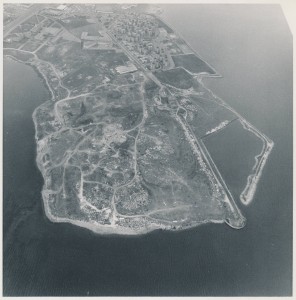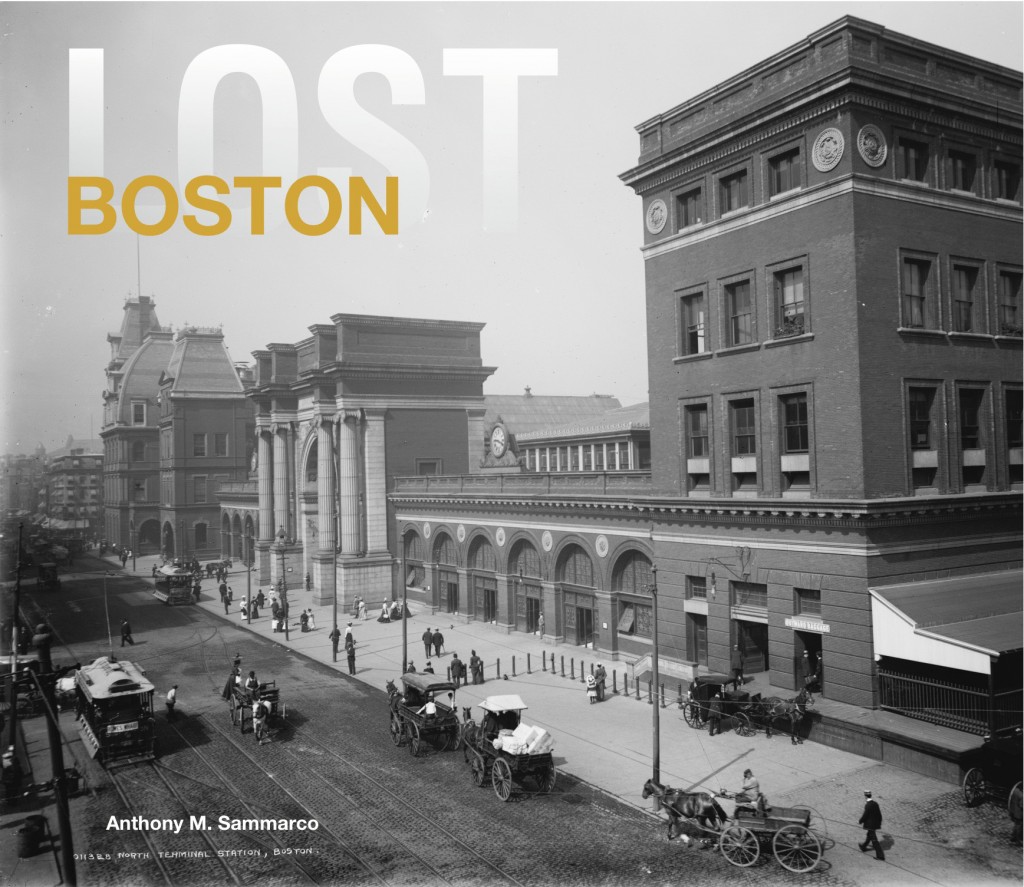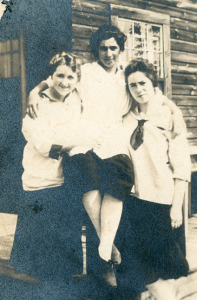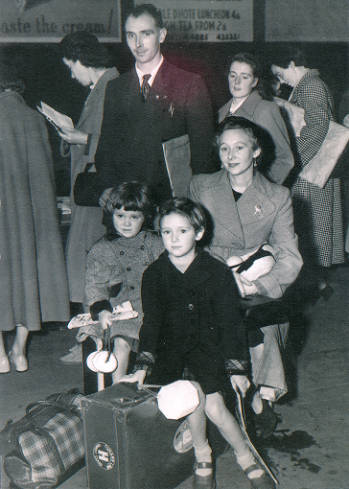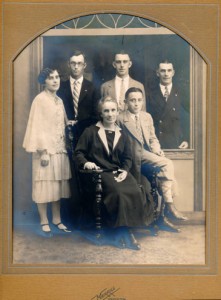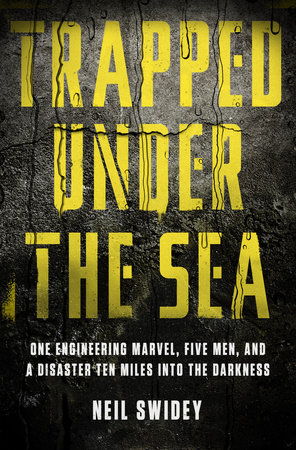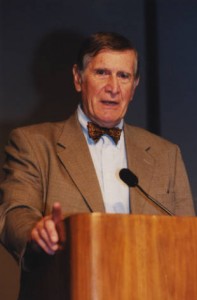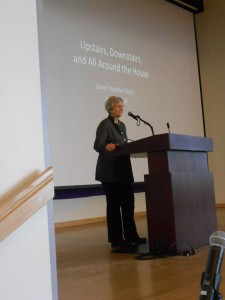
Laurel Thatcher Ulrich at the Mass. History Conference. Her keynote talk was titled “Upstairs, Downstairs, and All Around the House: Making Work Visible.” Photograph courtesy Mass Humanities.
At the recent Massachusetts History Conference keynote speaker Laurel Thatcher Ulrich encouraged attendees to consider the “tangible things” in history.
As I look around our collections, several items catch my eye – a 1940 Fun with Dick and Jane reader, an aerial photograph of Columbia Point, c. 1960, and membership lists of the Saturday Evening Girls. Here reside our tangible things that serve as our window into the past.
The Dick and Jane reader becomes more than a book on a shelf, it is memories of struggling to unlock the words that will eventually broaden our world; memories of cuddling with a parent or beloved sibling while reading; memories of a world that may have looked very different than our own.
Views of Columbia Point in the 1960s offer insight into Boston’s rural past, urban planning, and the future of higher education.
The Saturday Evening Girls, created in 1899 as a reading group at the North Bennet Street Industrial School and later an educational club of the Boston Public Library, became a progressive movement to educate and socialize young women. Best known for establishing the Paul Revere Pottery, the organization also published a newsletter, sponsored events, and trained women for leadership responsibilities. The Saturday Evening Girls membership lists are more than a series of names on a page; they open for us a world of arts and craft pottery, immigrant life, and reform movements in early 20th century Boston.
We encourage you to explore the tangible things in your own world. You can start with Laurel Ulrich’s free EdX course at Harvard University, called Tangible Things: Discovering History Through Artworks, Artifacts, Scientific Specimens, and the Stuff Around You. In this online and openly available course, Ulrich encourages participants to “discover new ways of looking at, organizing, and interpreting tangible things in your own environment.”
University Archives & Special Collections in the Joseph P. Healey Library at UMass Boston collects materials related to the university’s history, as well as materials that reflect the institution’s urban mission and strong support of community service, notably in collections of records of urban planning, social welfare, social action, alternative movements, community organizations, and local history related to neighboring communities.
University Archives & Special Collections welcomes inquiries from individuals, organizations, and businesses interested in donating materials of an archival nature that that fit within our collecting policy. These include manuscripts, documents, organizational archives, collections of photographs, unique publications, and audio and video media. For more information about donating to University Archives & Special Collections, click here or email library.archives@umb.edu.

